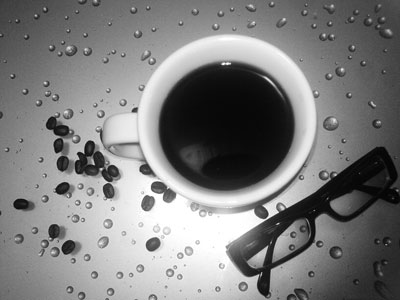All Nonfiction
- Bullying
- Books
- Academic
- Author Interviews
- Celebrity interviews
- College Articles
- College Essays
- Educator of the Year
- Heroes
- Interviews
- Memoir
- Personal Experience
- Sports
- Travel & Culture
All Opinions
- Bullying
- Current Events / Politics
- Discrimination
- Drugs / Alcohol / Smoking
- Entertainment / Celebrities
- Environment
- Love / Relationships
- Movies / Music / TV
- Pop Culture / Trends
- School / College
- Social Issues / Civics
- Spirituality / Religion
- Sports / Hobbies
All Hot Topics
- Bullying
- Community Service
- Environment
- Health
- Letters to the Editor
- Pride & Prejudice
- What Matters
- Back
Summer Guide
- Program Links
- Program Reviews
- Back
College Guide
- College Links
- College Reviews
- College Essays
- College Articles
- Back
Regarding the Zeitgeists of Our Era
Fads come and go like the wind, and everyone feels differently about them. During the autumnal months, crowds of people rush to Starbucks to purchase the infamous Pumpkin Spice Latte. Meanwhile, another group of people glares and sips their “superior” beverages. I myself don’t drink coffee, but I have many a friend who has expressed a desire to partake of the gourd-themed beverage, though they refused to actually do so on account of a much stronger desire to not be labeled as basic or uninteresting. Like my friends with the Pumpkin Spice Latte, people routinely deny themselves simple pleasures for the sole purpose of not following the crowd.
Everybody is guilty of this to an extent. Even I caught myself changing the way I felt for the sake of being different, when somebody mentioned how many white girls have been wearing Birkenstocks, a particular brand of shoe that previously I had been a fan of; upon hearing this person mention how many people like me were wearing them nowadays, I immediately resolved to never purchase a pair for myself. Then I paused, and wondered why it was so important to me that I didn’t give into trends. “So what?” I asked myself. I genuinely enjoy Birkenstocks, why should it change things that other people also enjoy them?
German has given us a word to describe these fads: zeitgeist—something that is associated with a particular group. Pumpkin Spice Lattes and Birkenstocks are zeitgeists of mainstream culture. These zeitgeists become taboo through their very association with 'basic' people. Anybody who partakes of these zeitgeists are, by extension, basic, unoriginal, and somehow less than those who do not partake.This zeitgeist culture we as a society have created is inescapable.
One example of the inevitability of partaking in some kind of zeitgeist would be the subculture known as ‘hipster’. Hipsters are characterized by their desperation for aberration (in other words, their desire to escape zeitgeist culture), though hipster culture in and of itself is a zeitgeist, resulting in an odd kind of Zeitgeist Limbo. It’s not difficult to spot a hipster—typically somebody in their twenties or thirties who places high value on independent thinking, rare or generally undiscovered artists, and irony or wit. When speaking with a hipster, you may hear phrases such as “I liked that before it was cool”, or “I know all of the best [insert here] places”. Hipsters pride themselves on a kind of pretension stemming from the belief that by not following the crowd, they are superior to those who do. However, because hipsterism is just another zeitgeist, nobody hates being called a hipster more than actual hipsters.
Pierre Bourdieu, a French philosopher active from the 1950s to the early 2000s, wrote myriad works discussing this topic, my favourite of which being his undisputed masterpiece, “Distinction”. Published in 1979, “Distinction” sets out to prove that taste is never truly only about taste. Bourdieu explains that preference, although thought of as unique, individual, or solely based on one’s own personal likings, has a strong tie to defining aspects of social classes. In other words, every aspect of our personalities is dependant on which social class we define ourselves by. A hipster would never be caught dead wearing Birkenstocks or drinking a Pumpkin Spice Latte, because the hipster social class sees anything conventional or mainstream as inferior.
Aside from the obvious cases I’ve already mentioned, everybody experiences the effects of Zeitgeist culture to some degree, but to what end? What purpose does this serve, if not to separate us into arbitrary social classes? The desire to be unique is a part of being human, but if it keeps us from doing the things that genuinely make us happy, it should not be our first priority. Do what makes you happy. I enjoy Birkenstocks, my friends enjoy Pumpkin Spice, and we will enjoy them without shame.

Similar Articles
JOIN THE DISCUSSION
This article has 0 comments.

We had to write an editorial for an english assignment, and I chose this topic as a kind of reminder to myself to just, like, chill out a bit and let myself live without worrying what other people think. I also had to remind myself to extend that curtesy to others. If I should be allowed to like what I like without shame, so should other people. After I turned it in, my teacher suggested I submit it to this site.